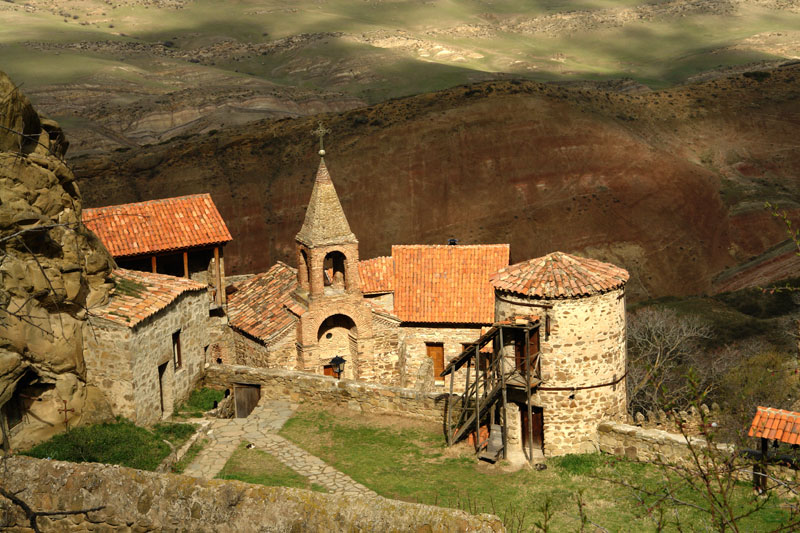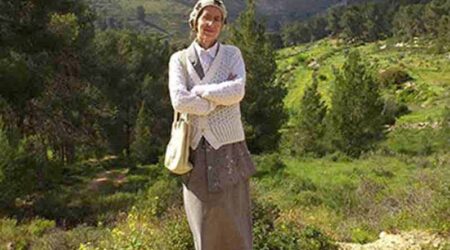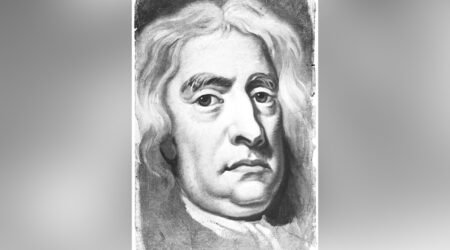Monk, Judge, Sultan, and President
Very often, what we consider unique and inimitable has already happened somewhere else.
I had to watch the final part of the recent Judge Kavanaugh saga from abroad, traveling through the country of Georgia. The ancient name of this country is Sakartvelo. The State of Georgia in America, a former colony of Great Britain, was named after the British King George II. However, the country Georgia, south of Europe, was named after St. George, who is considered the patron saint of this country.
So the country of Georgia bears the name of one of the most famous Christian saints, and historically, religion has played a considerable role in it. The ancient nation of Sakartvelo adopted Christianity in 319 A.D., immediately after neighboring Armenia – that is, about three generations earlier than the Roman Empire, and many centuries earlier than the rest of Europe. Note that Jews have lived in Georgia from about the 6th century B.C., and this country is proud of the fact that it is one of those few countries where there has never been anti-Semitism.
Christian religious traditions in Georgia, including the founding of monasteries and monasticism, go back centuries. In my travels there, I learned about one of the most famous and revered monks, David (revered by the Eastern Orthodox as Saint David of Gareji), who lived in the 6th century. The activities of this preacher caused the ire of the pagans, who received support from neighboring Persia. They incited one woman of loose morals to slander the monk, and the devout David was accused of sexual abuse.
According to ancient legend, the righteous David execrated that woman. However, he prophesied that the woman would bear the main punishment later: she would give birth to a stone, which would serve as proof of his innocence. According to legend, the monk’s prediction came true, and the crowd, despite a plea of David, stoned this woman to death. A church was erected in that place in the capital of Georgia, Tbilisi. David himself went to the desert mountains, where at the end of the 6th century he founded a cave monastery, which still exists today.
 This nameless woman from the 6th century, if she were alive today, could well be a participant in the #MeToo movement. The despicable accusation by a woman for the sake of political interests ties the Georgian monk David to the American judge Kavanaugh fifteen centuries later.
This nameless woman from the 6th century, if she were alive today, could well be a participant in the #MeToo movement. The despicable accusation by a woman for the sake of political interests ties the Georgian monk David to the American judge Kavanaugh fifteen centuries later.
Now, a year after the disclosed scandals of Harvey Weinstein, according to various estimates, between 400 and 800 men in America have been hit by the #MeToo movement. Some of these allegations are undoubtedly true. However, some are plain bogus, based on revenge or on the wish to earn some money or on the desire for 15 minutes of TV fame – or (as in the case of Judge Kavanaugh) due to political motives.
Unfortunately, the #MeToo movement has created an extremely negative precedent. Now any man in America is considered guilty of sexual harassment, not after a careful investigation and trial, but immediately at the time of the allegation.
The political consequences of this are easy to predict. In America, justice is part of a national character, regardless of sex, race, and income level. Therefore, the Democrats – supporters of the #MeToo movement – most likely will face an unpleasant surprise the very next morning after this year’s elections.
A well-established theory comes to mind – the so-called long correlations in human society. It means that the events of a distant past do not disappear without a trace. Rather, they lead to certain specific circumstances many centuries later. One of these historical events occurred in Turkey, a country that was a continuation of my journey, which borders European Georgia.
Most everyone is aware of the history of Istanbul and the history of the harems of the Ottoman sultans. The most famous was the harem of Sultan Suleiman the Magnificent, whose star was the Slavic beauty and master of political intrigues, Roxelana. But, as I was able to learn in Istanbul, Sultan Suleiman did not get the nickname “Magnificent” because of the harem. He got it because of his tax policy.
Immediately after coming to power at the beginning of the 16th century, Suleiman (then not yet magnificent) substantially reduced internal taxes in the territory of the Ottoman Empire and at the same time significantly increased external taxes (tariffs).
Five centuries later, President Trump did the same.
During the time of Suleiman, Venice was the main economic rival of the Ottoman Empire. Suleiman’s double-tax leverage led to it becoming more profitable to produce goods within the Ottoman Empire than to import these goods from Venice.
The tax policy of Suleiman led to a massive transfer of capital from Europe to the Ottoman Empire. This transfer led to an economic boom that lasted more than a hundred years and allowed the Ottomans not only successfully to compete with Europe in the economic sphere, but also to expand their empire. No wonder these hundred years are considered the “Golden Age” of the Ottoman Empire. Sultan Suleiman received the nickname “Magnificent” quite deservedly.
The success of such a tax policy is impossible if we operate with only one tax lever – either solely internal or external tariffs. President Trump has long understood that only the simultaneous application of levers to external and internal taxes creates the financial incentive that “squeezes out” competitors from abroad and forces them to transfer their production to America. The simultaneous manipulation of the two tax levers allows redirecting the global financial flows to where Trump wants them: to America.
Will American society learn from these history lessons? Will we eradicate the presumption of innocence? Will Americans vote in Democrats who are threatening to reverse the Trump economic reforms? Will the long historical correlations give enough wisdom to Americans to learn from others, and not from our own mistakes and successes?
Let’s hope this year’s election will give us a definitive answer.





